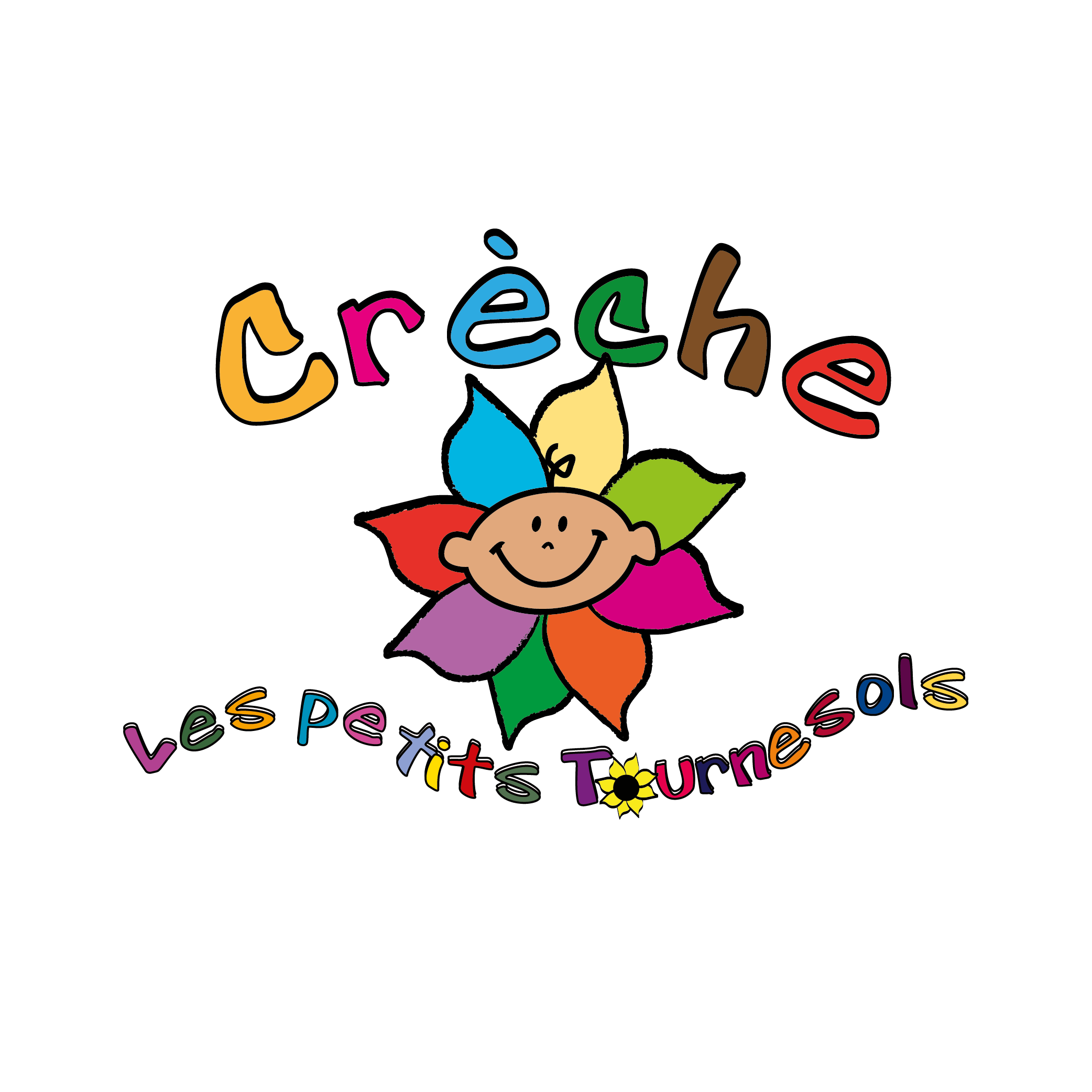Les Petits Tournesols
Our educational objectives
1. Promote autonomy
Encourage each child to develop at their own pace and gain independence in daily activities.
2. Stimulate the five senses
Provide various sensory experiences through adapted activities and diverse materials.
3. Teach basic personal hygiene
Support children in learning essential hygiene habits like using the toilet, diaper changes, and potty training. But also washing hands and brushing teeth.
4. Encourage community living
Foster sharing, mutual aid, and a sense of togetherness in a caring environment.
5. Develop respect
Teach children to respect others, themselves, materials, and community rules.
6. Encourage participation while respecting individual needs
Offer a variety of activities to engage children while respecting their need for personal space when necessary.
7. Introduce languages through play
Gradually expose children to different languages through games, songs, and interactive exchanges.
8. Discover the world through nature
Encourage exploration and learning in outdoor environments through outings, sensory experiences, and observing wildlife and plants. But also raise awareness about environmental respect and the natural cycle.
Les Petits Tournesols
Our educational objectives
1. Promote autonomy
Encourage each child to develop at their own pace and gain independence in daily activities.
2. Stimulate the five senses
Provide various sensory experiences through adapted activities and diverse materials.
3. Teach basic personal hygiene
Support children in learning essential hygiene habits like using the toilet, diaper changes, and potty training. But also washing hands and brushing teeth.
4. Encourage community living
Foster sharing, mutual aid, and a sense of togetherness in a caring environment.
5. Develop respect
Teach children to respect others, themselves, materials, and community rules.
6. Encourage participation while respecting individual needs
Offer a variety of activities to engage children while respecting their need for personal space when necessary.
7. Introduce languages through play
Gradually expose children to different languages through games, songs, and interactive exchanges.
8. Discover the world through nature
Encourage exploration and learning in outdoor environments through outings, sensory experiences, and observing wildlife and plants. But also raise awareness about environmental respect and the natural cycle.
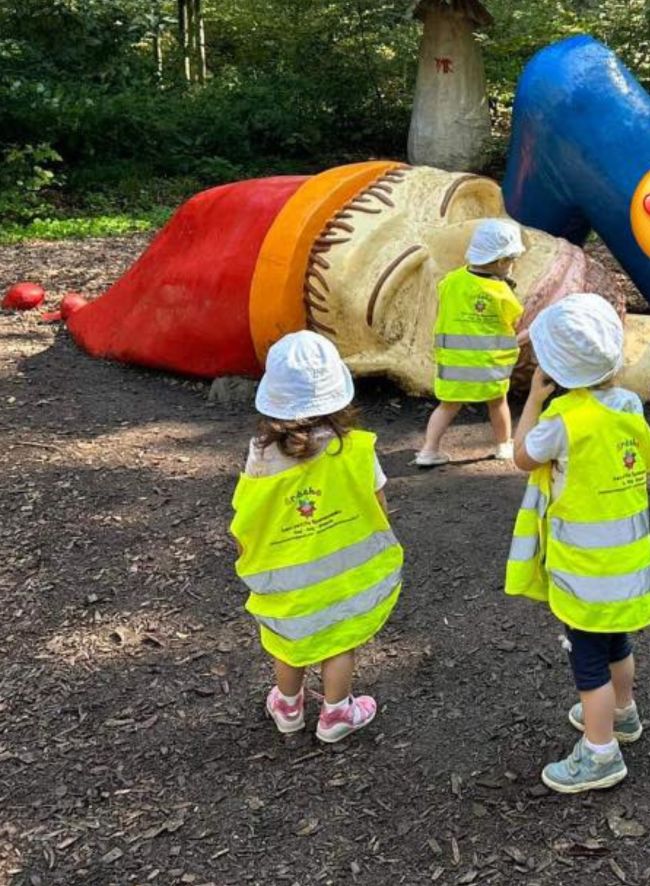
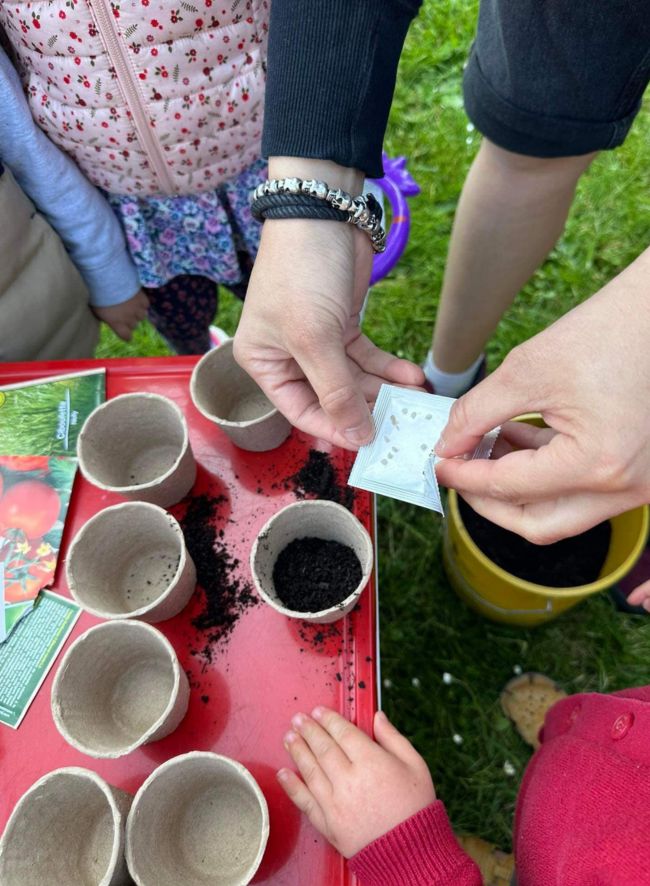
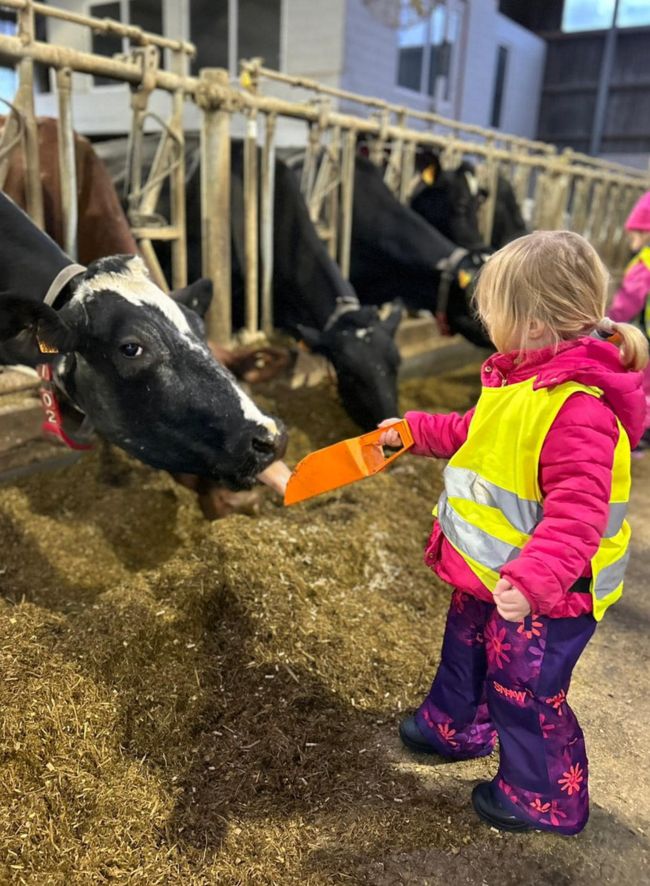
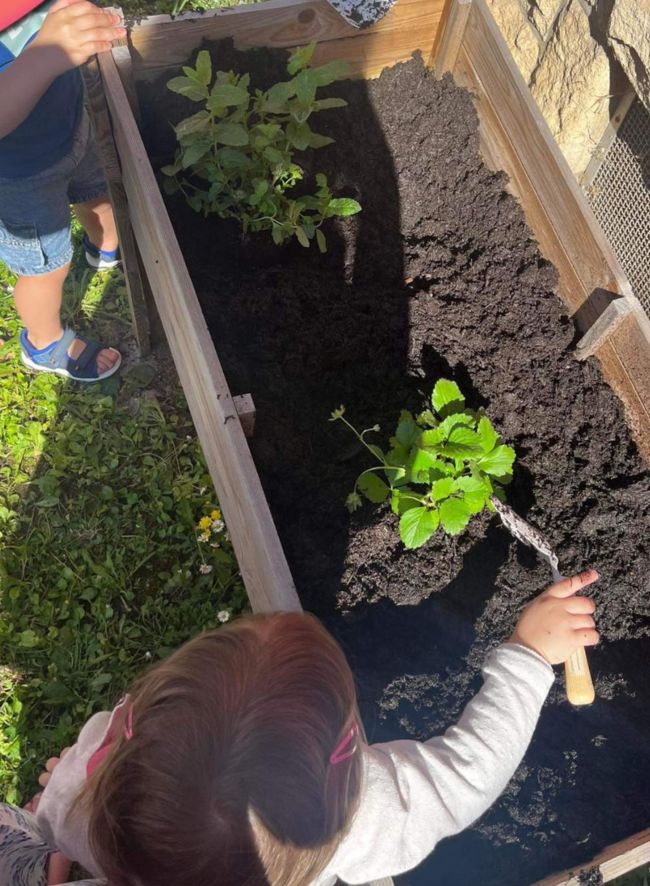
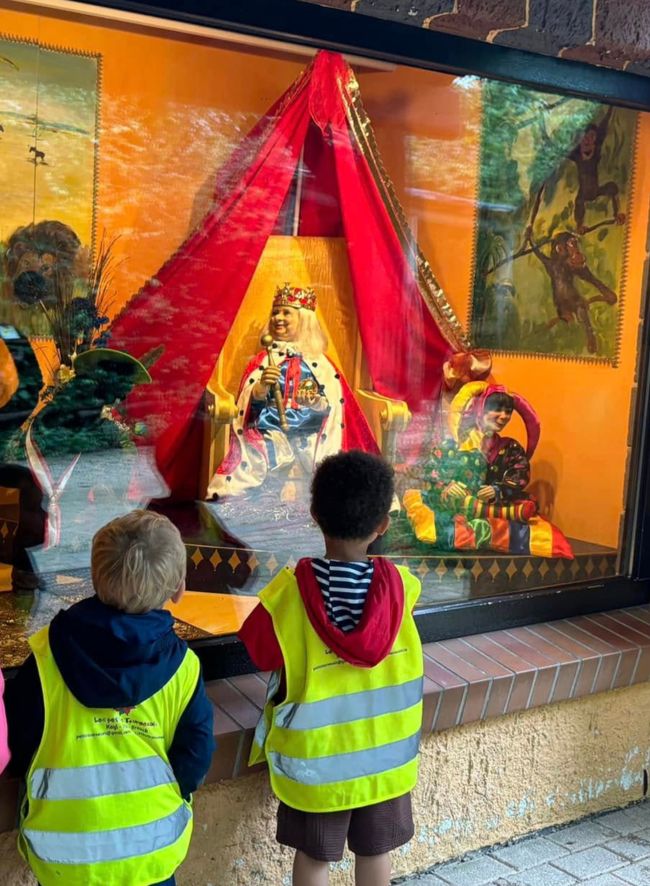
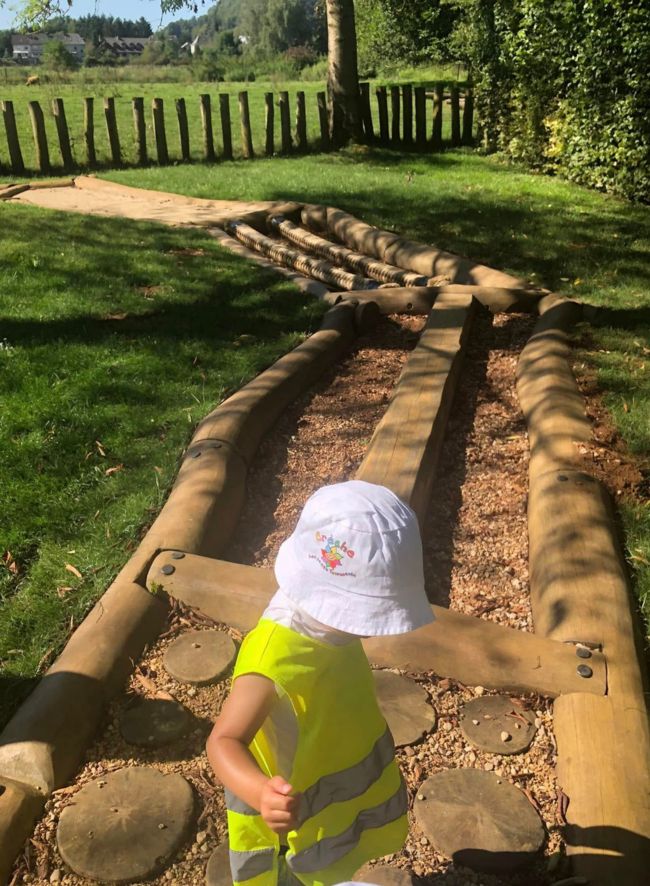
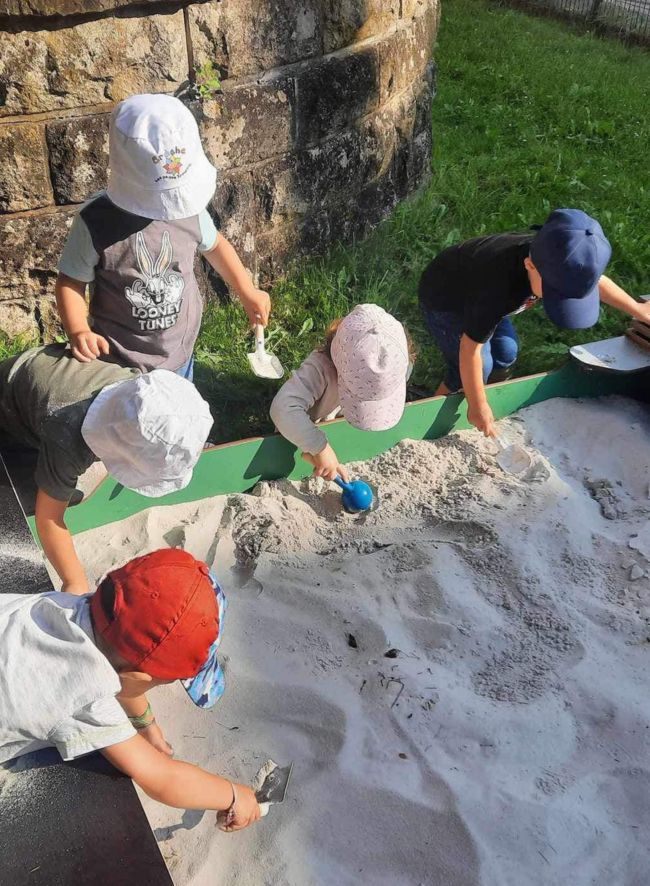
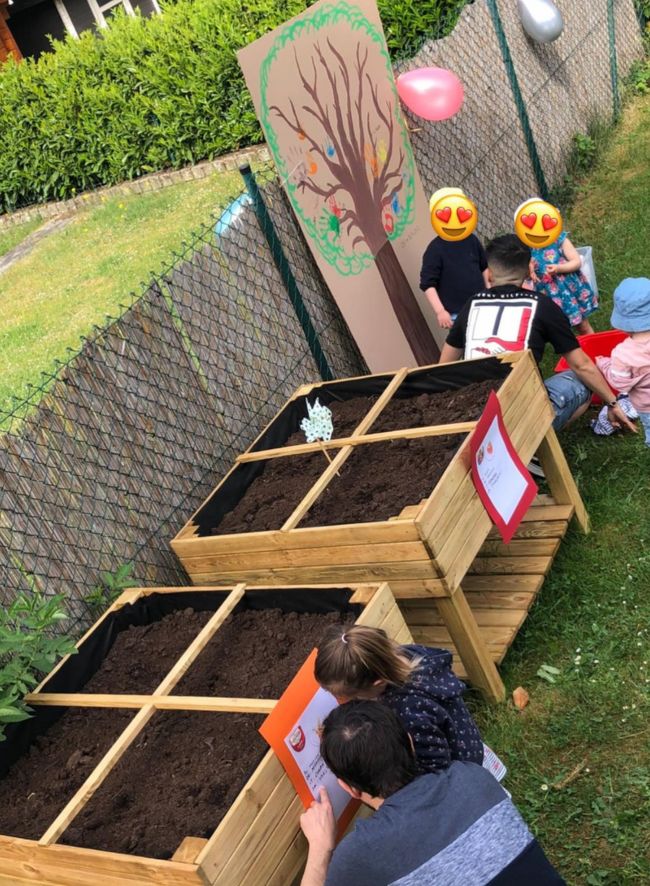
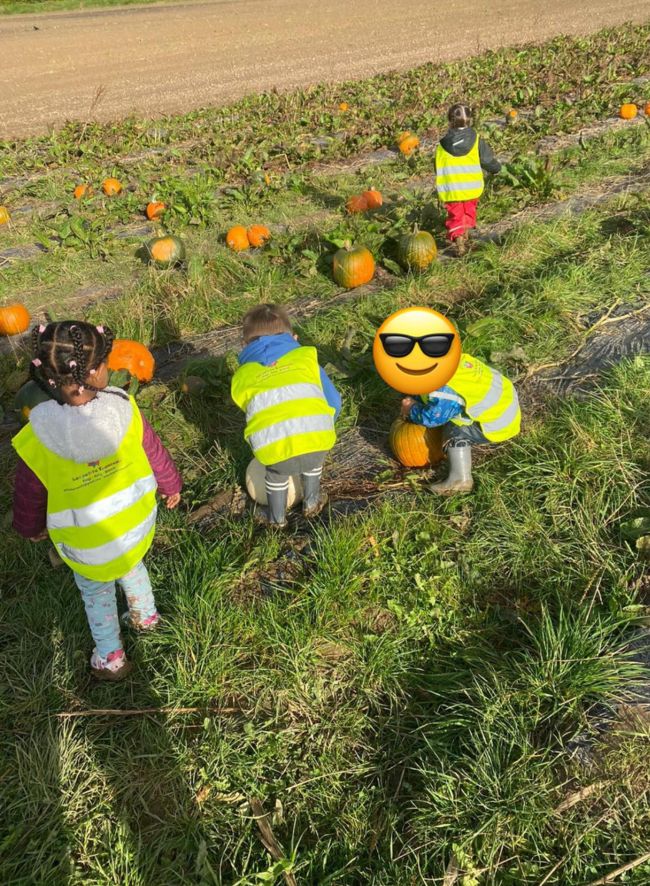
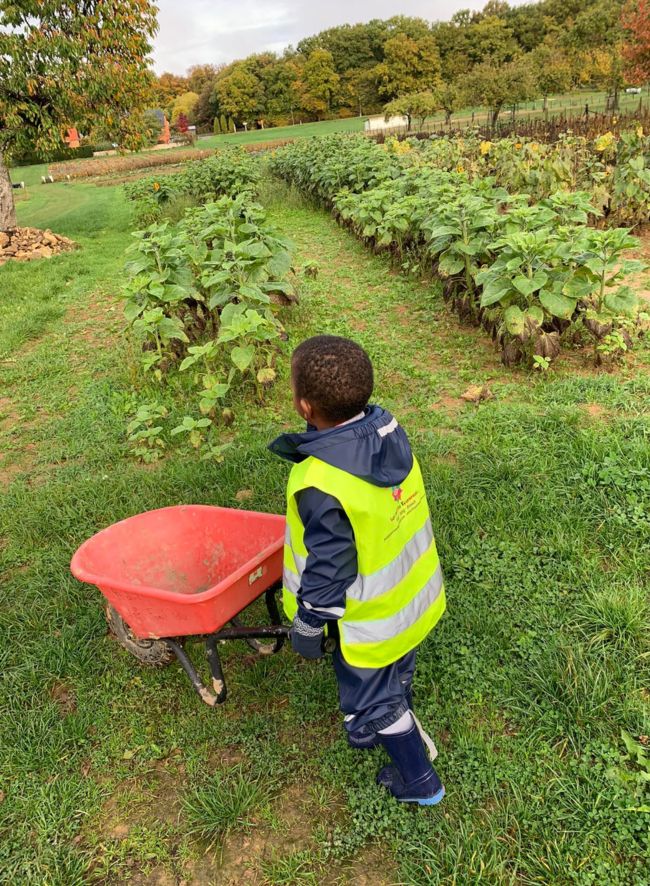
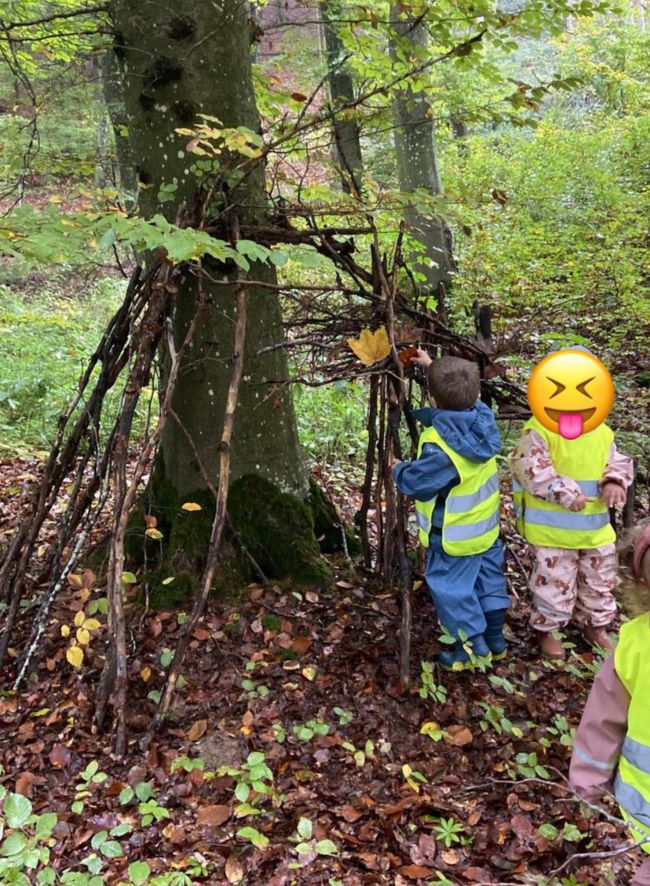
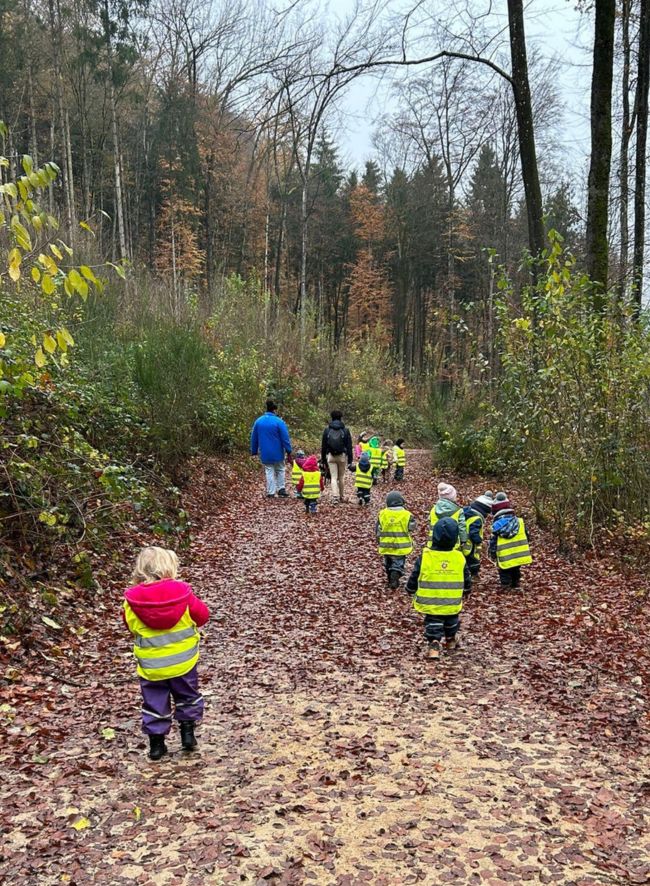

Daily Schedule
Play
Play is essential for a child’s development. At each stage of growth, children need appropriate activities to stimulate their imagination, creativity, and well-being. We incorporate different areas of focus, such as:
- Emotion and social relationships
- Values, participation, and democracy
- Language, communication, and media
- Aesthetics, creativity, and art
- Movement, body awareness, and health
- Natural and technical sciences
- Transition (Reference)
Proposed Activities
- Snoezelen: A sensory and relaxing experience
- Musical activities: Songs, rhythms, instruments
- Psychomotricity: Development of fine and gross motor skills
- Storytelling: Narrated or visual stories
- Role-playing games: Acting out roles and situations
- Construction games: Puzzles, blocks, and buildings
- Craft activities: Painting, drawing, modeling
- Language games: Nursery rhymes, songs, word games
- Free play: Encouraging individual creativity
Mealtime
Mealtime is a collective moment that takes place in a calm and friendly atmosphere. We encourage children’s autonomy by allowing them to:
- Serve themselves to assess their appetite
- Learn to eat properly, seated, and independently
Our meals are balanced, age-appropriate, and prepared daily with local products.
Nap Time
Nap time is an essential moment that ensures the child’s well-being. They must feel safe and comfortable.
Each child has their own bed and can bring a comforting object (blanket, pacifier, etc…).
Child development
The Autonomy
We support children in learning autonomy by encouraging them to:
- Choose and put away their toys independently
- Put on and take off their shoes and coat
- Use the toilet without assistance
- Serve themselves at mealtime
- Make personal decisions
- Express their emotions freely
Each child’s rhythm is respected and encouraged.
The Socialization
We help children integrate into social life by teaching them to:
- Listen to and respect others
- Interact with peers and adults
- Cooperate and share
The Psychomotor development
Developing motor coordination and gestures is fundamental for children to understand their bodies in space.
For this, we offer various activities that stimulate both gross and fine motor skills.
We encourage children to participate in oral activities, but each child is free to express their needs and desires without obligation.
A transition period
The adaptation phase is a key moment for both the child and the parents. It allows for a smooth transition to life at the daycare and should be done gradually.
Adaptation process
- Day 1: The parents and child meet the educator at the daycare for a 30-minute introductory session.
- Day 2: The child spends 1 hour at the daycare, alone with the educator.
- Day 3: The child stays at the daycare for 4 hours, still alone with the educator, and has their first meal there.
- Days 4 and 5: The adaptation is adjusted according to the needs of the child and parents (gradual increase in time spent, nap at the daycare, etc.).
This personalized approach allows each child to integrate at their own pace and in a reassuring environment.
